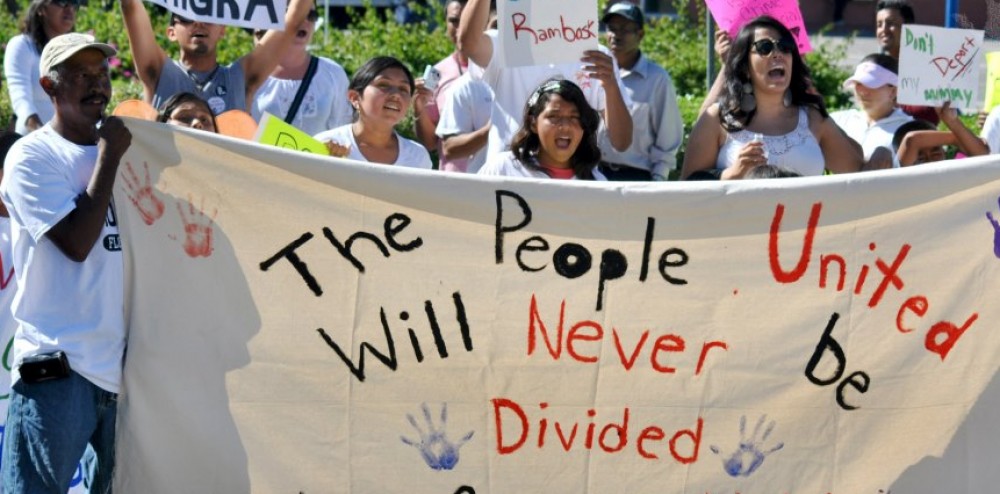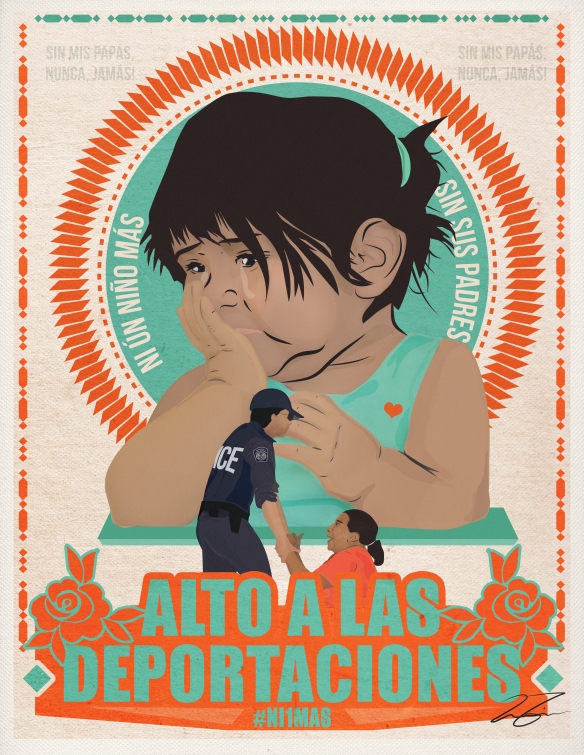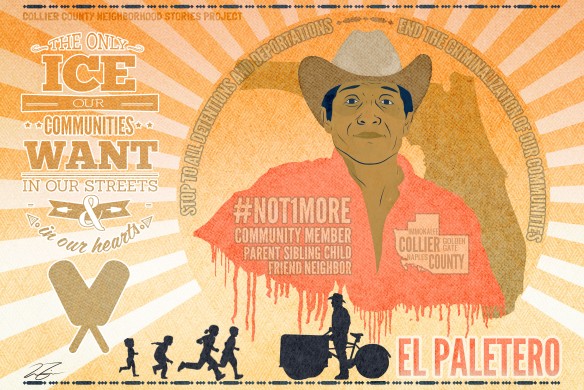From our friends at Detention Watch Network (this post has been duplicated from an original email they sent)
 Dear colleagues,
Dear colleagues,
The immigration debate has been evolving rapidly. The latest information is that the Senate Judiciary Committee will discuss detention, criminalization and interior enforcement provisions in the bill on Monday May 20th.
We encourage you to make calls TODAY and TOMORROW to members of the Senate Judiciary Committee to urge them to oppose the amendments that would further harm immigrants in detention and support amendments that would further critical detention reforms. (see attached a more detailed analysis of these and other related amendments)
We are particularly concerned about Grassley Amendment 53 which would dramatically expand immigration detention during removal proceedings and indefinitely afterwards for those who cannot be removed as well as severely limit the use of alternatives to detention and bond hearings. Passage of this amendment would be a huge setback to our collective efforts to dramatically reduce detention.
Please make calls TODAY and TOMORROW. They do make an impact!! Please also share this action alert widely with your networks and allies.
Thank you.
NOW IS THE TIME TO ACT!!
THE SENATE JUDICIARY COMMITTEE WILL CONSIDER DETENTION RELATED AMENDMENTS TO THE IMMIGRATION BILL S. 744
MONDAY May 20th
Call Senators from the Judiciary Committee TODAY and TOMORROW
and ask them to:
OPPOSE DETRIMENTAL DETENTION AMENDMENTS
“Hello, my name is [YOUR NAME] and I am calling to strongly urge Senator [NAME OF SENATOR] to OPPOSESenator Grassley’s amendments 41, 47, 51 and 53 and Senator Sessions’ amendment 12. These amendments are too extreme and out-of-step with the bipartisan spirit of S.744.
SUPPORT FAVORABLE DETENTION AMENDMENTS
“I further strongly urge Senator [NAME OF SENATOR] to SUPPORT Senator Coons’ amendment 6 and Senator Blumenthal’s amendment 2. These amendments are easy fixes that address critical issues needed to reform the immigration detention system.”
[SEE LIST OF SENATORS AND PHONE NUMBERS BELOW]
DETRIMENTAL DETENTION AMENDMENTS
Grassley 41: Issue: This amendment strikes provision in bill that codifies the Office of Legal Access Programs and expands Legal Orientation Programs.
Grassley 47: Issue: This amendment strikes Section 3717, which provides for custody hearings for all detained immigrants and increases fairness of custody review and stipulated orders of removal procedures.
Grassley 51: This amendment strikes Section 3715, which directs DHS to create a secure alternatives program in every field office (including contracting with CBOs) and includes case management services. Section 3715 also requires DHS to make individualized assessments to determine level of supervision and to review the level of supervision monthly. It also permits secure alternatives to constitute custody in certain cases.
Grassley 53: Issue: This amendment expands immigration detention during removal proceedings and indefinitely afterwards for those who cannot be removed. Severely limits use of alternatives to detention and bond hearings.
Sessions 12: Issue: This amendment mandates bond levels of no less than $5,000 for nationals of non-contiguous countries, who have not been admitted or paroled, and who are apprehended within 100 miles of the border or present a flight risk as determined by ICE.
FAVORABLE DETENTION AMENDMENTS
Coons 6: Issue: This amendment requires interoperability of ICE, CIS, CBP, and EOIR databases containing information on all detainees. Specifies categories of information that must be maintained in the database of each agency and establishes regular reporting requirements to Congress. Makes reports available to public without FOIA request.
Blumenthal 2: Issue: This amendment restricts the use of solitary confinement in immigration detention and outlines guidelines and oversight for its use.
Contact the Senators below who are on the Judiciary Committee
Senator Patrick Leahy (VT)
DC: (202) 224-4242
Email: https://www.leahy.senate.gov/contact/
Senator Dianne Feinstein (CA)
DC: (202) 224-3841
Email: https://www.feinstein.senate.gov/public/index.cfm/e-mail-me
Senator Charles Schumer (NY)
DC: (202) 224-6542
Email: https://www.schumer.senate.gov/Contact/contact_chuck.cfm
Senator Dick Durbin (IL)
DC: (202) 224-2152
Email: http://www.durbin.senate.gov/public/index.cfm/footer-contact?p=contact
Senator Sheldon Whitehouse (RI)
DC: 202-224-2921
Email: http://www.whitehouse.senate.gov/contact
Senator Amy Klobuchar (MN)
DC: (202) 224-3244
Email: http://www.klobuchar.senate.gov/emailamy.cfm?contactForm=emailamy&submit=Go
Senator Al Franken (MN)
DC: (202) 224-5641
Email: http://www.franken.senate.gov/?p=email_al
Senator Christopher A. Coons (DE)
DC: (202) 224-5042
Email: http://www.coons.senate.gov/contact/
Senator Richard Blumenthal (CT)
DC: (202) 224-2823
Email: https://www.blumenthal.senate.gov/contact/#
Senator Mazie K. Hirono (HI)
DC: (202) 224-6361
Email: http://www.hirono.senate.gov/contact.cfm
Senator Orrin Hatch (UT)
DC: (202) 224-5251
Email: http://www.hatch.senate.gov/public/index.cfm/email-orrin
Senator Lindsey Graham (SC)
DC: (202) 224-5972
http://www.lgraham.senate.gov/public/index.cfm?FuseAction=Contact.EmailSenatorGraham
Senator John Cornyn (TX)
DC: (202) 224-2934
Email: http://www.cornyn.senate.gov/public/index.cfm?p=ContactForm
Senator Mike Lee (UT)
DC: (202) 224-5444
Email: http://www.lee.senate.gov/public/index.cfm/contact
Senator Jeff Flake (AZ)
DC: (202) 224-4521
Email: http://www.flake.senate.gov/public/index.cfm/contact-jeff











